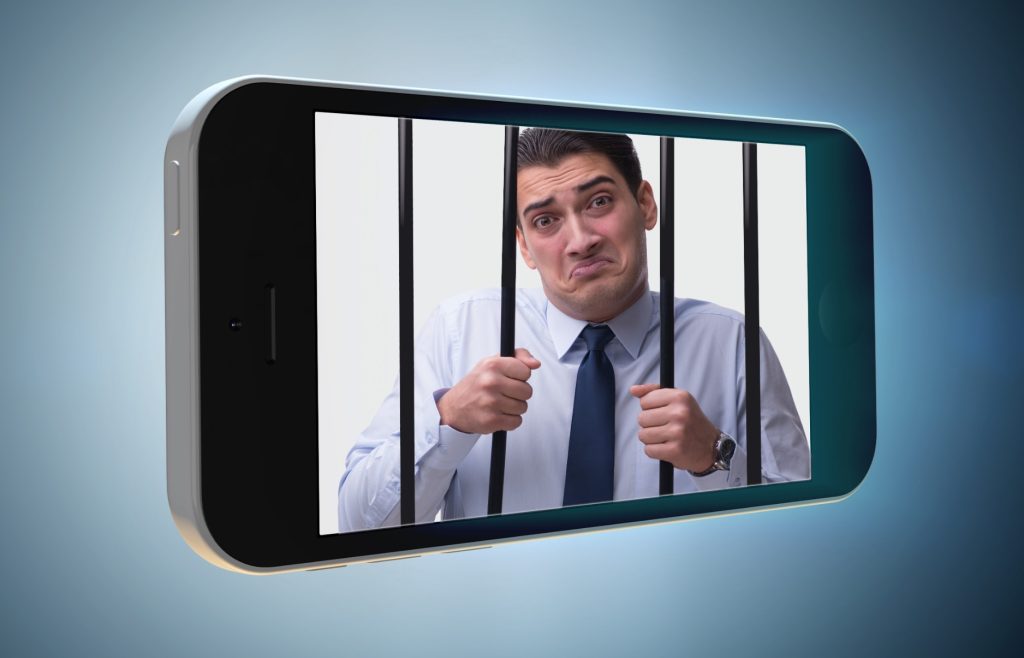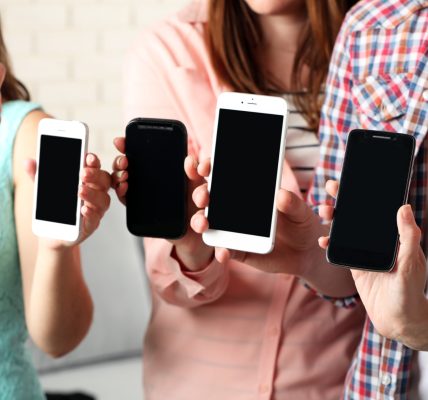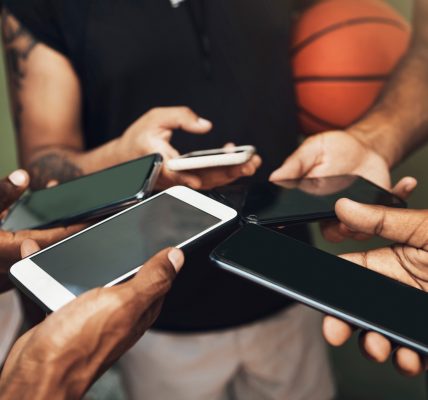Should Social Media Companies Be Held Liable for Addictive Algorithms?

The way an algorithm works sounds pretty harmless: you type in a search box and that sets off a series of events that hopefully leads your screen to something close to what you’re looking for. An algorithm is a series of guesses about what you want.
Artificial Intelligence is designed to take that algorithm and improve it. But it can also be used to hijack that algorithm, and intentionally show you things that are known to cause mental health problems. Should that be legal?
We have reviewed scientific studies here at AddictionNews that show nearly half of U.S. teenagers say they are “addicted” to their phones. In an article about whether designing predatory algorithms should be legal, the Fair Observer notes:
[…] aggregated studies of a group of 32 countries show that over a fifth of their populations have already developed some degree of social media addiction.
That’s not just teenagers — all smartphone users worldwide report “addiction” rates of 20%. Is it okay to design products that cause sleep disorders? Sleeping disorders are one of the first signs that smartphone use has exceeded a healthy threshold.
According to a recent warning about social media use issued by U.S. Surgeon General Dr. Vivek Murthy, “there is growing evidence that social media use is associated with harm to young people’s mental health.” The Surgeon General cited numerous harmful consequences — in addition to sleeping disorders — for excessive social media use by adolescents:
- it causes symptoms of depression and anxiety
- it perpetuates body dissatisfaction
- it exacerbates disordered eating behaviors
- it engenders low self-esteem, especially among adolescent girls
- 46% of adolescents aged 13-17 said social media makes them feel worse
- 14% said it makes them feel better
An increasing number of authorities think it should be illegal to create algorithms that intentionally cause mental health problems. Arguing in favor of legal liability are the authors of a recent deep dive into addictive algorithms by Fair Observer. The authors conclude:
The claim that social media companies are not collectively liable for creating addiction among their users is implausible, to say the least… [L]awmakers must go beyond attenuating the effects of social media use. They must address the root of this problem — the creation of addiction-inducing algorithms.
The business world is well aware of addictive algorithms and the harm they can cause. In October 2020 the Business Ethics Quarterly from Cambridge University Press published a lengthy summary of the literature on addiction by design through social media, and concluded:
While the benefits of social media are not negligible, we argue that social media addiction raises unique ethical concerns not raised by other, more familiar addictive products, such as alcohol and cigarettes. In particular, we argue that addicting users to social media is impermissible because it unjustifiably harms users in a way that is both demeaning and objectionably exploitative. Importantly, the attention-economy business model of social media companies strongly incentivizes them to perpetrate this wrongdoing.
It seems that science and the law are arriving at a similar conclusion: that social media addiction is harmful by design. Companies found to be deceptive in their disclosure of their harmful intentions may have to answer for that behavior in court.
Written by Steve O’Keefe. First published January 10, 2024.
Sources:
“Are Addiction-Inducing Algorithms in Social Media Lawful?” Fair Observer, January 4, 2024.
“Surgeon General Issues New Advisory About Effects Social Media Use Has on Youth Mental Health,” News Release from the U.S. Surgeon General, May 23, 2023.
“Ethics of the Attention Economy: The Problem of Social Media Addiction,” Business Ethics Quarterly, October 6, 2020.
Image Copyright: Elnur.





Some might say, “If it wasn’t the phone, it would be something else.”
Or, “It’s up to the parents to check their behavior.”
Or, “They will get over it.”
Or a thousand other things, all of which come fully equipped with their own multitudinous talking points.
And it depends on what exactly a person is relating to. If their addiction is to playing stupid games, maybe they do need help, or a swift kick. I got no sympathy.
If they’re addicted to having long-distance relationships with other artists they would not have otherwise known — like I am — that’s not hurting anybody, so leave me alone.
Pat, thanks for the comment. “Addiction” or “excessive use” in this context is pretty severe. It means the person has the phone with them and turned on constantly, that it is causing problems in their lives by their own admission, and that they want to use the phone less but find themselves unable to do so. I think we’ll soon see smartphone features that help people set better limits on phone use.